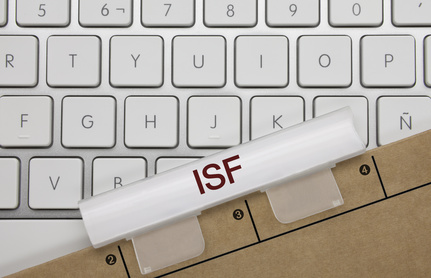
Introduction to ISF
The ISF, Importer Security Filing, is an important first step in the import process for any shipment arriving to USA on a vessel. Air shipments do not have ISF requirements from customs. ISF filing requirements apply only to ocean shipments. Both the accuracy and timing of the filing of an ISF are critical to ensure compliance with CBP Customs and Border Protection and avoid fines to the importer.
History and Objective of ISF
The ISF initially surfaced as a customs requirement in 2009 as part of the implementation of the Trade Act of 2002 and the SAFE Port Act of 2006. The main objective of the ISF is to provide CBP with important shipment information that assists them in flagging high risk shipments that can represent a safety threat to the US.
ISF Requirements (10+2 Data Elements)
The ISF is also commonly known as 10+2, this is due to the data requirements for transmission. There are 10 data items that are the responsibility of the importer or their agent, and 2 additional data items are transmitted by the carrier or steamship. The 10 data items that must be transmitted are:
- Importer of record number
- Consignee number
- Seller name and address
- Buyer name and address
- Ship to party name and address
- Manufacturer name and address
- Country of origin
- Commodity HTS (Harmonized Tariff Schedule code)
- Container stuffing station name and address
- Consolidator name and address
The following 2 data elements are the responsibility of the carrier or steamship line:
- Vessel stow plan
- Container status messages
Bill of Lading Information
Additional to the 10 data elements required by CBP, the customs broker must transmit the complete Bill of Lading (BL) information for each shipment. Complete Bill of Lading information includes:
- Master and House Bill of Lading SCAC codes
- Master and House Bill of Lading numbers
The SCAC codes are Standard Carrier Alpha Codes that identify the steamship that issues the Master Bill of Lading and if a House Bill of Lading will be issued, there will also be a separate SCAC code and Bill of Lading number for the forwarder or carrier at the House Bill of Lading level. The Bill of Lading information is necessary to file the ISF.
Instructions for Importers
Many of our importers start to copy us on their email correspondence with their suppliers early in the shipment process. This way we can step in when necessary to request ISF data, or to give Bill of Lading instructions. It is important to give clear Bill of Lading instructions to the shipper to facilitate the import process. In general, we provide the following Bill of Lading instructions to all our importers so that they may in turn provide these to the shipper:
- No original BL, issue TELEX release or equivalent electronic Bill of Lading
- Consignee: as per invoice
- Notify Party: Doral Customs Brokers, 8805 NW 35 Lane, Doral, FL 33172, 786-224-0500
ISF Filing Timeline and Penalties
The ISF is required 24 hours prior to loading goods on a vessel leaving the last international port destined to the first USA port. In order to comply with CBP filing requirements, we must have the complete ISF information 3 days prior to the ship date. CBP enforces penalties against late filing, and the fines applicable for not filing, late or inaccurate filing can be up to $5,000 per violation.
Importance of Shipper’s Awareness
If the shipper has no experience or little experience shipping to the US, they might not be aware of the ISF filing requirements or timing. The ISF filing is the sole responsibility of the importer, and shippers in foreign countries can send the shipment via ocean to the US without the ISF filing, since this is an import requirement and not an export requirement at the country of origin. Therefore, it is important that the importer be aware of the requirements and insist that the shipper provide the ISF data with enough time to comply with the 24-hour prior to ship date requirement from US Customs.
Requesting ISF Filing Services
To request your ISF, please send us an email with your contact information and ISF information from your supplier. A power of attorney (POA) will be required to file the ISF with US Customs.
Our Services at Doral Customs Brokers
At Doral Customs Brokers, we process the ISF information received from the importer and the shipper and prepare the data to be submitted to US Customs electronically. Once we receive the verification number from US Customs, we forward the approved ISF transmission response to the importer and the shipper.
It is important to note that the ISF filing requirement applies to cargo intended to enter the US commerce, including in-bond cargo which will be immediately transported, exported, or entered in a bonded warehouse.
Commitment to Our Clients
It is our main goal to be an efficient and supportive part of your logistics team. At Doral Customs Brokers, we are here to help with the complete import process, starting with the ISF filing and up to the delivery of your shipment. We frequently work with first-time importers who are filing their first ISF. You can count on us to provide you with detailed guidance and follow-up to make sure that your shipments comply with the ISF filing requirements set by CBP.
Contact Information
Contact us today and we will ensure that your shipments are compliant and processed for customs release in a fast and efficient manner. We’re here to help and we look forward to meeting you.
